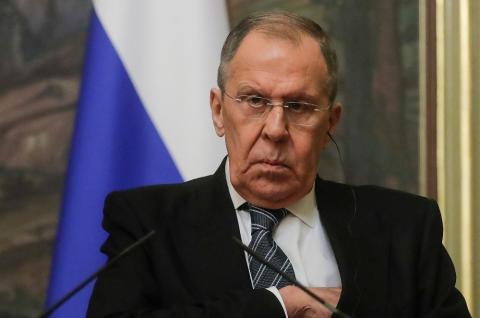
On the eve of the eighth anniversary of the eruption of the Syrian revolt, Damascus is finding it difficult to translate its “military victory” into a political one. This leaves the door wide open over Syria’s fate amid a fierce competition between its allies, Russia and Iran, over reaping the spoils of war.
Over the past year, the regime succeeded in recapturing eastern Ghouta in Damascus’ outskirts and southern and southwestern Syria. Some 60 percent of the country has been restored under regime control, while a third lies in the hands of Washington’s allies and ten percent is held by Ankara’s.
Even though the sounds of gunshots and roaring of warplanes has died down around the capital, Damascus is suffering from a crushing economic crisis that is getting worse every day. This calm has not encouraged Arab and western countries to reopen their diplomatic missions in Damascus.Four wars
Bashar Assad declared in a speech in February that his regime was still fighting battles on the field and against corruption and the economic “siege” and waging a propaganda war on social media.
In the South, where residents have been awaiting a return of electrical services, protesters have again poured out into the streets of Daraa after the regime erected a statue of late President Hafez Assad. Elsewhere, tensions are still high in the predominantly Druze region of Swieda.
Iran and Hezbollah have meanwhile, returned to the South to bring in new Syrian recruits to their militias after non-Syrian elements were withdrawn from the area in line with American-Russian agreements. Competition is, however, fierce between Moscow and Tehran over the recruitment of youths in wake of the Russian military’s support of the many versions of the Fifth Corps that used to include former opposition fighters.
The competition is not limited to the youths, but has reached economic issues. Russia had in 2017 suspended economic agreements between Damascus and Tehran, but Iran swept in two weeks ago and revived them giving it an upper hand in swaying the regime in its favor against Moscow.
This hidden competition between Moscow and Tehran has extended to the borders of the Euphrates where Russia supports the deployment of its Fifth Corps units adjacent to Iranian-trained Syrian militias that are awaiting to swoop in and fill the void left behind by the American troop withdrawal.Extended stay
The Americans were expected to withdraw from Syria at the end of April, but US President Donald Trump agreed with his European allies to extend their stay in order to wield power during negotiations with Russia, rein in Iranian influence in the area, protect Kurdish forces and prevent the reemergence of ISIS after its defeat on the ground. US-backed Syrian Democratic Forces (SDF) are still battling ISIS’ last pocket in Baghouz in eastern Syria.
The eighth anniversary of the eruption of the Syrian revolt coincided with a meeting held in Brussels Thursday between donor countries to drum up funds for Syrians who have been displaced by the war. The United Nations won almost $7 billion in aid pledges, but failed to garner the $9 billion it said was needed to help the millions of Syrians forced to flee their country, as well as those facing a humanitarian crisis at home. Nearly 12 million people inside Syria need emergency aid, and 5.6 million refugees are being housed and fed in Turkey, Jordan, Lebanon, Iraq and Egypt.
Meanwhile, Syria’s reconstruction has been linked to reaching a political solution, keeping the chemical weapons file on the table and holding regime officials accountable for their crimes. Political efforts, spearheaded by UN envoy Geir Pedersen, are focusing on reaching an agreement with Russia over the formation of a Constitutional Committee. He is also focusing on the system of rule in Syria, elections, a new constitution and security and counter-terrorism.Concerns up North
As the violence appears to be dying down throughout Syria, concerns remain in the North in Idlib and the Aleppo, Latakia and Hama countrysides where some 3 million people reside. Idlib, in the northwest, is under the control of former al-Qaeda affiliate Hayat Tahrir al-Sham. The area is the last remaining opposition stronghold in Syria. On Wednesday, it came under bombardment – the heaviest airstrikes since Russia and Turkey reached a de-escalation agreement on the area in September. A UN representative warned earlier this week that the war in Syria was not over yet. He also warned against the launch of a major offensive on Idlib that could result in a humanitarian catastrophe.
The coming months should bring an answer over the fate of the regions east of the Euphrates, the American al-Tanf base near the border with Jordan, negotiations between Damascus and the Kurds, the formation of a safe zone between the US and Turkey east of the Euphrates, the economic crisis in regime-held areas, Israeli strikes on Iranian positions, Israel receiving American recognition of its annexation of Syria’s Golan Heights and who the victor will be in Russian-Iranian competition in regime areas.












